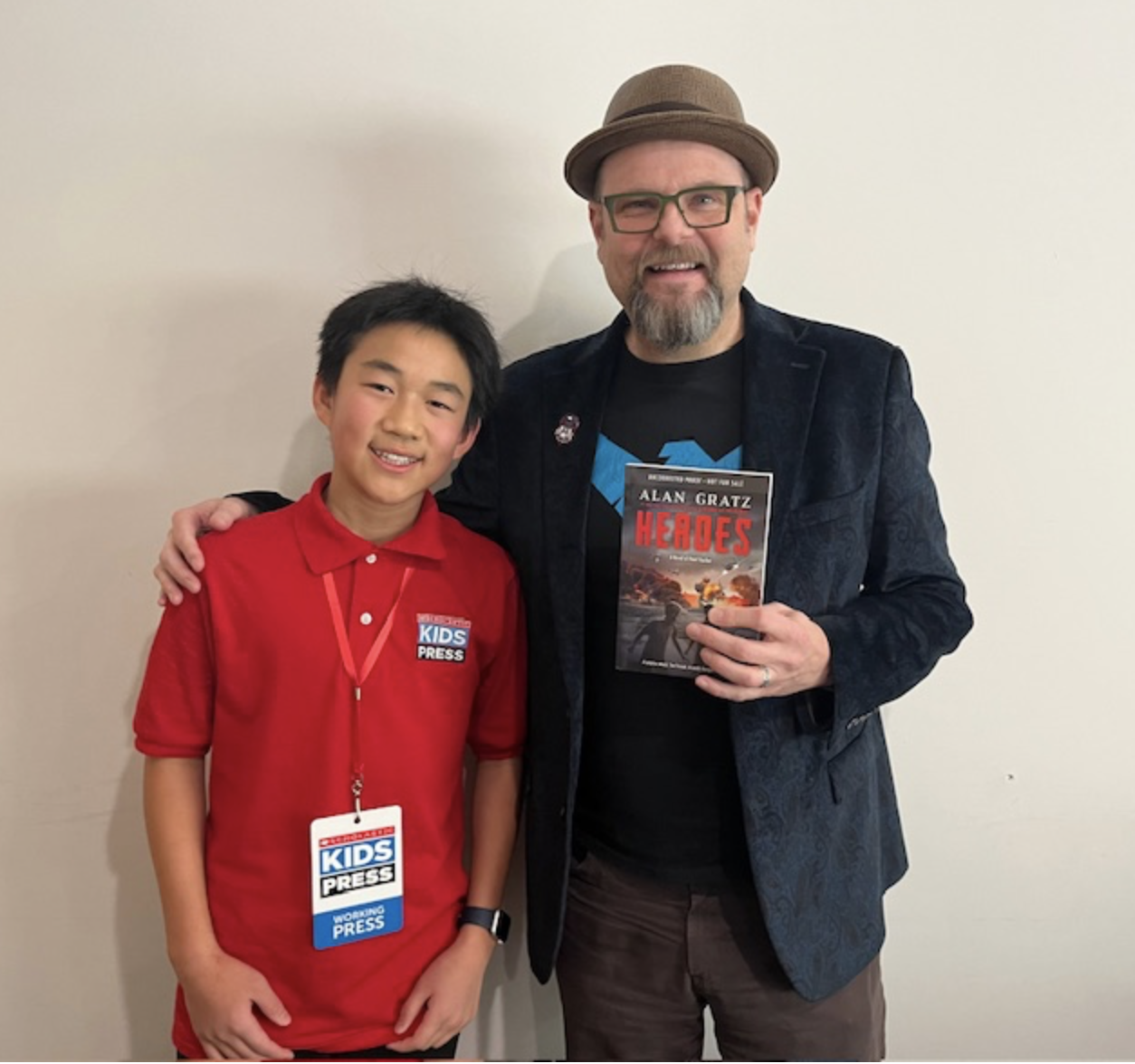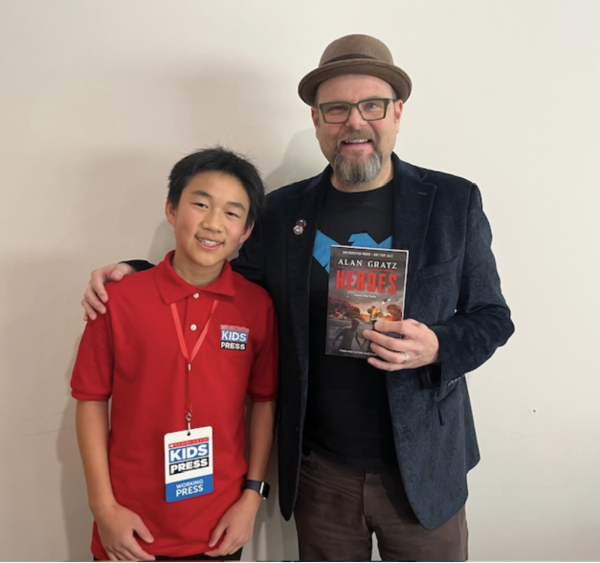KID REPORTERS’ NOTEBOOK
Alan Gratz Writes About Pearl Harbor


Max with award-winning author Alan Gratz at the Chapel Hill Public Library in North Carolina
Alan Gratz is the bestselling author of books for young readers, including Allies and Ground Zero. I recently spoke with Gratz about his latest work of historical fiction. It’s called Heroes: A Novel of Pearl Harbor (Scholastic Press, February 6, 2024).
Gratz visited the Chapel Hill Public Library in North Carolina to talk about his gripping new novel. It introduces readers to two teenage boys, Frank and Stanley, who live in Hawaii in the early 1940s. The boys’ lives are turned upside down after a surprise attack on Pearl Harbor, a United States military base on the island of Oahu.
The actual attack took place on December 7, 1941. U.S. soldiers were caught off guard when Japanese fighter pilots and torpedo bombers attacked from overhead. More than 2,000 people were killed. In response, the U.S. entered World War II, which was then raging in the Pacific and Europe.
“I DID MY DUTY”
Gratz had personal reasons for writing Heroes. At the time of the attack, his grandfather was stationed at Pearl Harbor. He served on the USS Pelias, a ship that repaired submarines.
Like many members of his generation, Gratz’s grandfather didn’t talk much about his wartime experiences. He would only say, “I was there, I did my duty.”
Writing Heroes offered Gratz a chance to learn more about what his grandfather and others on the base went through.
RAISING AWARENESS ABOUT RACISM
In Heroes, Gratz also brings important social justice issues to light. “Whenever I’m writing about an event from history,” he said, “I want to talk about the consequences.”
After the attack, a wave of prejudice against Japanese Americans spread across the country. Racism against Asian Americans grew worse. Anyone remotely associated with Japan became an object of suspicion.
Between 1942 and 1945, Asian Americans were sent to internment camps in Arizona, California, Colorado, and elsewhere. Robbed of their possessions, they were forced to live in brutal conditions surrounded by barbed-wire fences.
“People became skeptical of their Japanese American neighbors even though they had been good friends 15 minutes before the attack,” Gratz said.
In addition to the military and political dimensions of the story, Gratz also wanted to show how society was affected. Through his characters’ explorations of the divide between “American society” and Japanese Americans, the author encourages young readers to look at their own lives. He wants readers to ask themselves if they have prejudices that need to be confronted.
“In Heroes,” Gratz told me, “there was this question of, ‘Will you use your power to help somebody when they need it?’”
